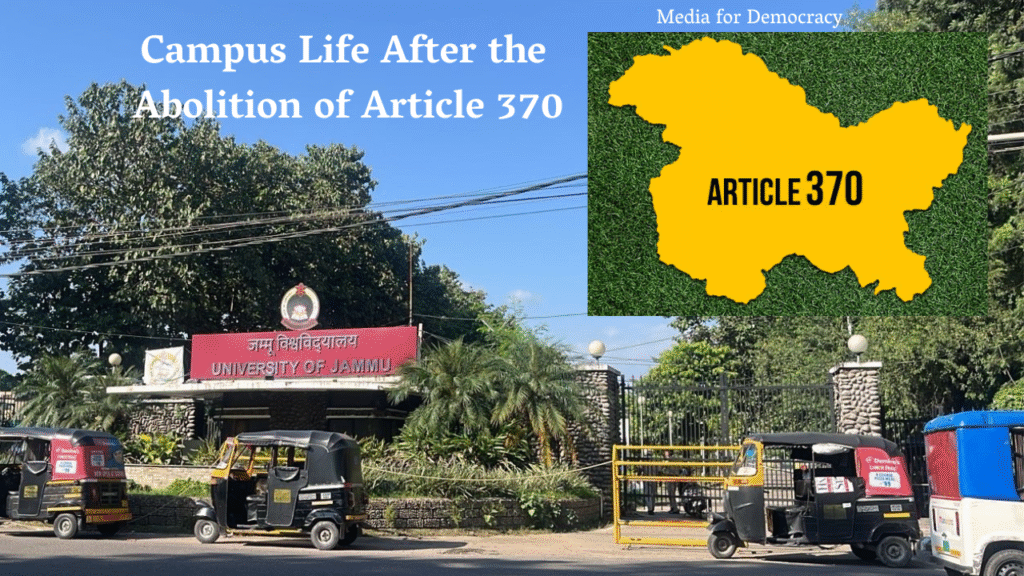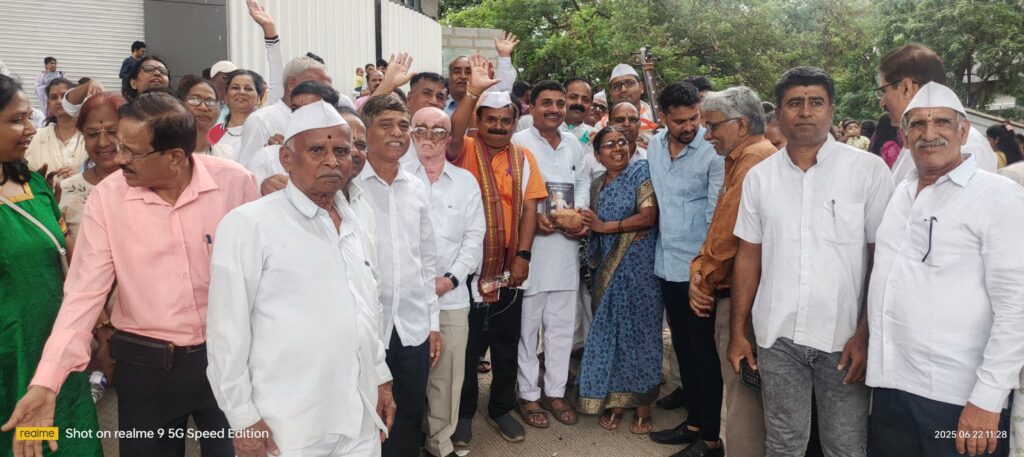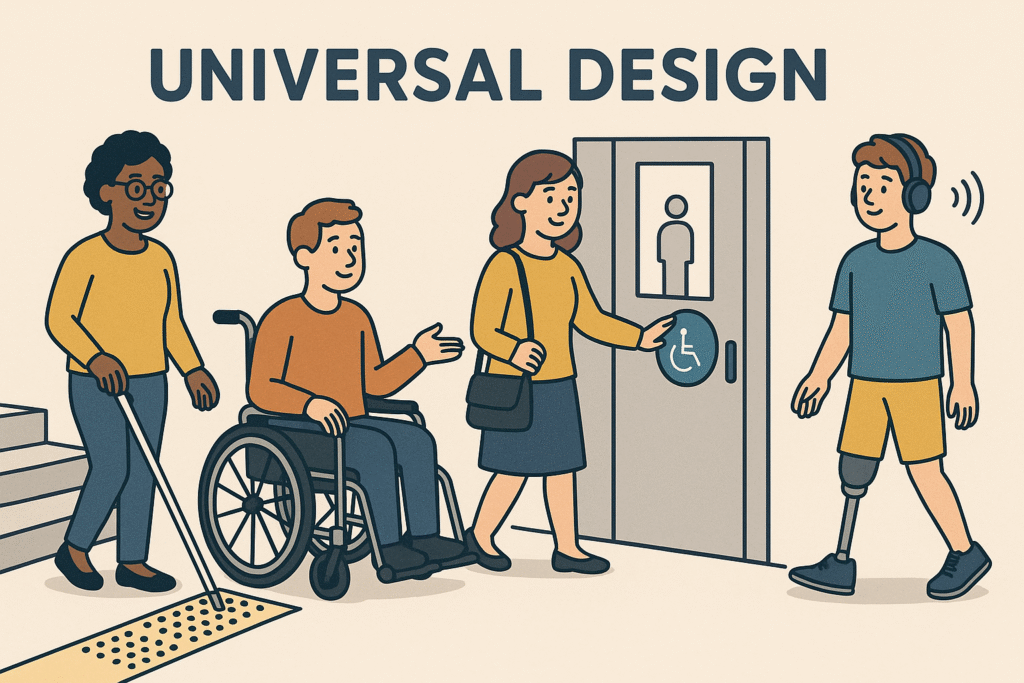Bhavya Aggarwal | 22nd August 2025
When the special status of Jammu and Kashmir was revoked in August 2019, it was clear that the move would bring political, social, and economic consequences across the region. But on university campuses, the changes are often more subtle, visible not just in official policies but in how students live, learn and imagine their futures. During a series of conversations with students across departments, a mixed picture emerged, one of opportunity, uncertainty and gradual transformation. While some spoke about new academic initiatives, others admitted that not much in their everyday campus life has changed.
Growing Numbers and Rising Expectations
Ashray Shobna, a final-year law student pointed out how admissions have grown significantly in recent years. “My batch has around 72 students, but the one after us has around 120-130 students.” she said. The rising numbers suggest that more students are now choosing Jammu as a place to pursue higher education. For many, this increase ultimately reflects a growing trust in the opportunities that the university can provide and making the campus a bit more diverse as compared to before. Yet, for the students, these rising batch sizes also mean increased competition, pressure on faculty, and a need for improved infrastructure.
In contrast, a first-year law student described the makeup of the new class with optimism. He shared that since classes have only recently begun, not everyone has been attending regularly.
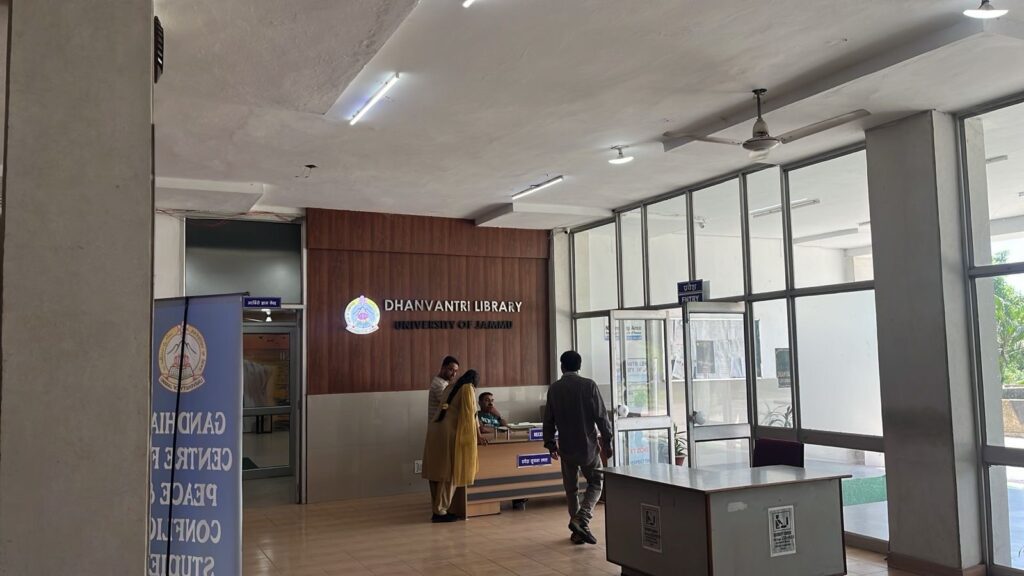
For now, most of his classmates are from familiar regions like Rajouri and Poonch, which has always been the case. “There’s also a student from West Bengal in my class and I think as more people join in, we might start seeing more students from outside J&K more often” he said, adding that such diversity could bring new perspectives into the classroom.
The increasing diversity, though gradual, is seen as a welcome development. It signals that the university is beginning to be noticed beyond the state, though the pace of change is not as swift as many expected when Article 370 was revoked.
Opportunities and Gaps
Students from different departments voiced a mix of satisfaction and frustration. Achint Kamra, a student pursuing MA in Sociology from the university recalled that the department had organized a memorial lecture in honor of S.C. Dube, a renowned figure in Indian Sociology, with a guest speaker invited from Banaras Hindu University. The event, she noted, was intellectually stimulating, giving them access to experts from outside the region.
She also recalled volunteering during the three-day induction programme for freshers, where one of the key sessions included a presentation by Brigadier Pawan Rai on ‘Operation Sindoor’. She described the session as highly enriching, as it gave a first-hand perspective on the security realities of the region. For her, such interactions offered a rare opportunity to directly engage with defense officials.
The induction programme also featured motivational inputs from industry leaders. In a special video message, the founder of GHV Accelerator, urged students to think beyond conventional careers and focus on innovation and problem solving.
These glimpses of exposure show that opportunities are being created, but they are not evenly distributed across departments. While some faculties see external speakers and industry engagement, others struggle to provide similar platforms.
A student pursuing political science however, expressed a more restrained view about the changes on campus. According to them, the daily rhythm of academic life has remained largely unchanged. “Classes are held in the same way, and apart from a handful of guest lectures or special programmes, there hasn’t been a major shift in the opportunities available to us”, the student said. While such events might create a momentary sense of enthusiasm, they rarely translate into long-term academic benefits in student opportunities.
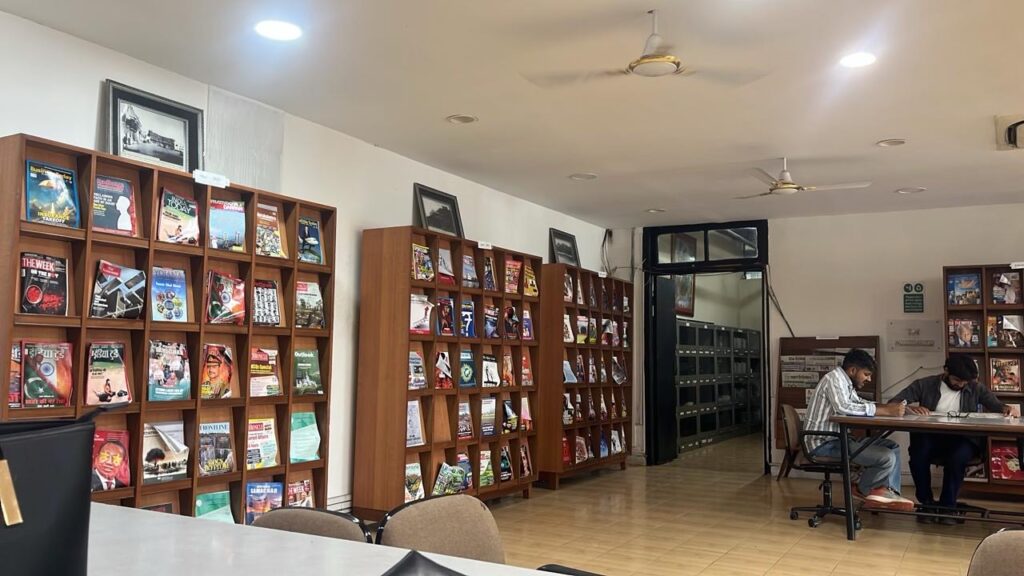
Innovation in Curriculum
One of the most ambitious steps taken by the University of Jammu has been the launch of the Design Your Degree programme, an initiative highlighted by Vice Chancellor Prof. Umesh Rai. The four-year programme, designed in line with the National Education Policy (NEP) 2020, allows students to shape their own academic journey by choosing courses from different disciplines. Focusing on interdisciplinary learning, it encourages critical thinking and flexibility.
The university has also pursued academic collaborations with UK-based universities, opening doors for international exposure. For new students entering the system, such innovations hold great promise, aligning the campus with the spirit of the National Education Policy 2020.
Change in Quiet Waves
A student from the Department of English shared that for those already midway through their course, life on campus has largely remained unchanged. While new initiatives and programmes may benefit upcoming batches, students currently in the system feel that the broader academic and cultural atmosphere has not shifted in any significant way since the abrogation.
The sense of anticipation that followed the abrogation of Article 370 has not entirely translated into daily campus life. As one walks through the corridors, the reality is that classrooms are still constrained, many students remain anxious about their careers, and the feeling of a truly transformed educational environment is still elusive.
This August marks six years since that landmark decision. While some students see signs of change and hope, many more wonder why progress has been so slow. Educational reforms are often long-term processes, but for those who are currently studying are caught between the old and new systems and the wait can feel frustrating.
A Call for More
The students’ voices reveal a crucial lesson: reforms cannot be judged only by announcements or policies but by their impact on everyday student life. The University of Jammu has made notable efforts, but students want more career guidance, more faculty engagement, more cross-departmental collaboration, and more opportunities that translate into tangible outcomes.
Six years on, the abrogation of Article 370 remains a political milestone, but its meaning on campus is still unfolding. For many, it feels like the beginning of a process rather than the result. What students are asking for is not just promises of reform, but the lived experience of transformation and this is something that can only happen when opportunities become accessible to all, not just a select few.
Bhavya Aggarwal is a media researcher based in Mumbai. Originally from Jammu, she closely follows issues of education, policy, and social change in the region.

